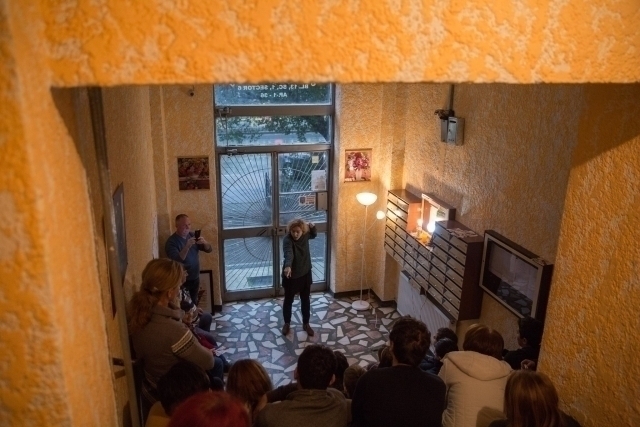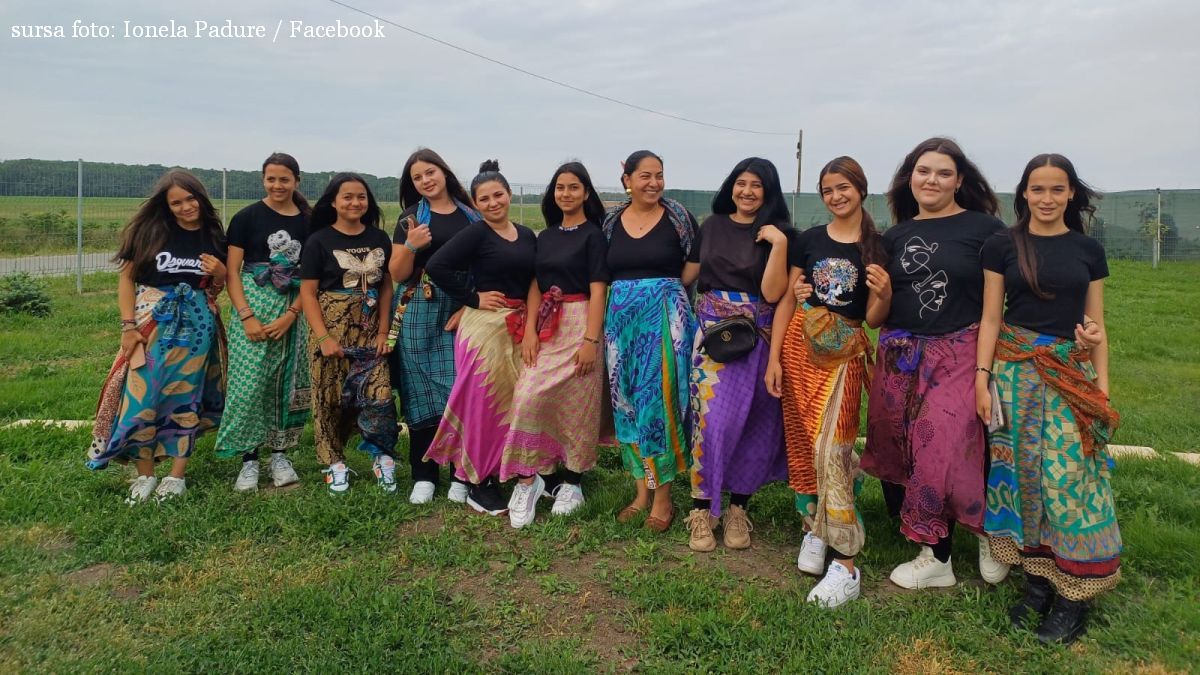The arts and the community in 2016
Citizens initiatives and community spirit were this year as well in the focus of major projects aimed at bringing people closer to culture, but also closer together.

Christine Leșcu, 28.12.2016, 13:24
Citizens’ initiatives and community spirit were
this year as well in the focus of major projects aimed at bringing people
closer to culture, but also closer together. Some of them were fostered by the
Home-Made Culture non-governmental organisation, which in recent years has
specialised in staging theatre plays in unconventional venues, such as private
homes in apartment buildings. This autumn, 7 different events were staged on 7
different evenings in the stairwell of an apartment building. The programme for
the events was chosen with the audience, that is the occupants of the building
themselves. This was part of a broader project called Generator whose aim was
to encourage citizens propose activities that would meet their socialising
needs.
After several attempts, the initiators of the
project found an apartment building in the Crangasi district in Bucharest whose
occupants were open to their idea. Cristina Epure, a member of the Home-Made
Culture Association, told us how this initiative was received by the people:
People were very open at first, which is not
something you see every day. Before choosing this building, we spoke to the
people, we went from door to door, but most of them were reluctant. It was
something new to them. Besides, people weren’t exactly close to each other. So
they saw everything new as a potential threat. Not to mention that the
stairwell in an apartment building is often a no man’s land. No one claims this
space, but if someone wantsto do something there, all of a sudden
people start claiming ownership of it.
Slowly but surely, the stairwell turned into an
area that has a little bit to offer to everyone. The organisers staged here
theatre plays, opera shows, origami demonstrations and drawing and collage
workshops. All the events had free
access, and occasionally some of residents would bring a snack. Therefore a
community developed around this event and people learned that they can have a
really good time together, even with a limited amount of resources. Cristina
Epure again:
Jean-Lorin
Sterian, who set up our association, is a visionary man who is very familiar
with the art world in Romania. He encouraged people to implement projects with
a social and educational impact. We didn’t just focus on the artistic element.
The first play we staged, for example, was an educational performance called
Bad Children featuring Katia Pascariu. We wanted the performances to speak to
everyone, both children and adults. The project didn’t last long, but we felt
it had an impact. I hope that when people enter the building or take the
stairs, they remember these events and realise there is more to do than stay at
home in front of their TVs or computers.
It’s not just educational and socially-engaged
theatre that can encourage community spirit, but also architectural projects.
This is what two young architects have been doing for many years now. Together
they own StudioBasar, and in 2016 they continued working together with the
Metropolitan Library in Bucharest. They believe public libraries are among the
few existing resources that can be instrumental to boosting community spirit,
which is something that has been missing in recent times, architect Alex Axinte
from StudioBasar told us:
I
believe this is an effect of post-transition, something we’ve lost along the
way, and now wonder why our food is tasteless. We don’t know it lacks the salt.
The two of us at StudioBasar, as architects, thought that this is something we
can work on. Architects have to act with the means at their disposal in order
to identify whatever remains of community spirit.
This summer, the architects from StudioBasar
together with students of architecture and sociology decorated the façade of
one of the buildings of the Metropolitan Library located on one of the most
crowded streets in Bucharest so that it may stand out more. Also, they helped
open a new Metropolitan Library branch in the Militari district, an area known
for its large number of apartment buildings built during the communist period.
For the latter project, the inhabitants of the area were also consulted and all
said they were happy the library on the ground floor of their apartment
building would reopen. Alex Axinte told us more:
We talked with the users of the children’s
branch, which is next door, we talked to the librarians and specialists. We all
agreed that the library needs to be expanded for activities, without
sacrificing the book storage area. Socialisation associated with cultural
activities is a huge necessity for an area of 300,000 people. The research
project our students put together before the project kicked off shows that
people usually meet each other in supermarkets or in the building. Therefore,
there is an urgent need for venues where people should be able to socialise and
the people are happy a 40-square-meter library will soon open nearby.
Public libraries can fuel community spirit as
long as they are not just associated with reading, Anca Rapeanu, the director
of the Metropolitan Library says. Apart from reading clubs, the Metropolitan
Library also hosts knitting workshops and IT and foreign language classes, all
free of charge, available in the library’s 33 branches in Bucharest. Moreover,
last summer, the Story Caravan was initiated, also in cooperation with Alex
Axinte, who provided organisers with a do-it-yourself trailer, which can be
easily turned into a multipurpose space. Anca Rapeanu described how a normal
day unfolds for the people involved in the project:
We wake up at 6 in the morning. We take out
the toys, crayons, markers, balls and puppets from their boxes and put them in
the trailer in such a way as to know where everything is. The caravan then sets
into motion and, once it arrives in the park, the boxes are unloaded, the props
are arranged and we start the workshops at 10. These are either do-it-yourself
or drawing workshops or outdoor games. At 11 we start playing the skipping rope
or the duck hunt. Meanwhile, my colleagues talk to the parents and explain what
we do at the library and with our caravan. At 7 in the evening, we have puppet
shows, then a zumba workshop. Late at night we pack everything up and head
home.
The main purpose of the project is to prove
that libraries are first and foremost public spaces and secondly cultural
spaces, which is something the organisers hope will become clearer in 2017.






























